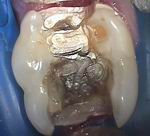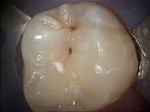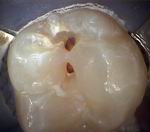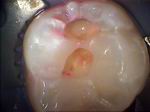Call & Book an Appointment TODAY!
519-748-4020

 Well, it's also called Minimally Invasive Dentistry. Whatever you call it, the strategies of dealing with tooth decay are evolving.
Well, it's also called Minimally Invasive Dentistry. Whatever you call it, the strategies of dealing with tooth decay are evolving.
The old model familiar to most Baby-Boomers saw most teeth getting their first filling when there was already a fairly large cavity - and getting a large filling as a result. Once placed, fillings wear out and have to be replaced periodically - with a slightly bigger filling each time. The result after a few decades was often a mouthful of teeth weakened by very large fillings, which eventually may need crowns to hold them together. You fifty-somethings know what we're talking about.
Rates of tooth decay have been falling steadily, thanks to fluoride, education, and better prevention. But the philosophy of dealing with decay, when it happens, is also changing.
Decay can now be discovered much earlier, with cavity-detecting lasers like the Diagnodent. And dentists are much more likely to notice and intervene early. If decay is caught in the very early stages, it can sometimes be reversed by diet and hygiene changes and extra fluoride.
When a cavity does has to be filled, it's more likely to be treated while it's still small - leaving a small hole and a small filling that doesn't weaken the tooth. Technology like air abrasion or lasers can often do this with no pain and no drill. Teeth that are treated minimally like this are much more likely to last a lifetime, and the younger generation will need a lot fewer crown and major reconstruction than their parents.


If you have more questions, visit us our Kitchener Dentist Office in Doon South.
This information in provided by Doon South Dental, located in Kitchener, Ontario, Canada. Call us at 1-519-748-4020 we look forward to connecting.